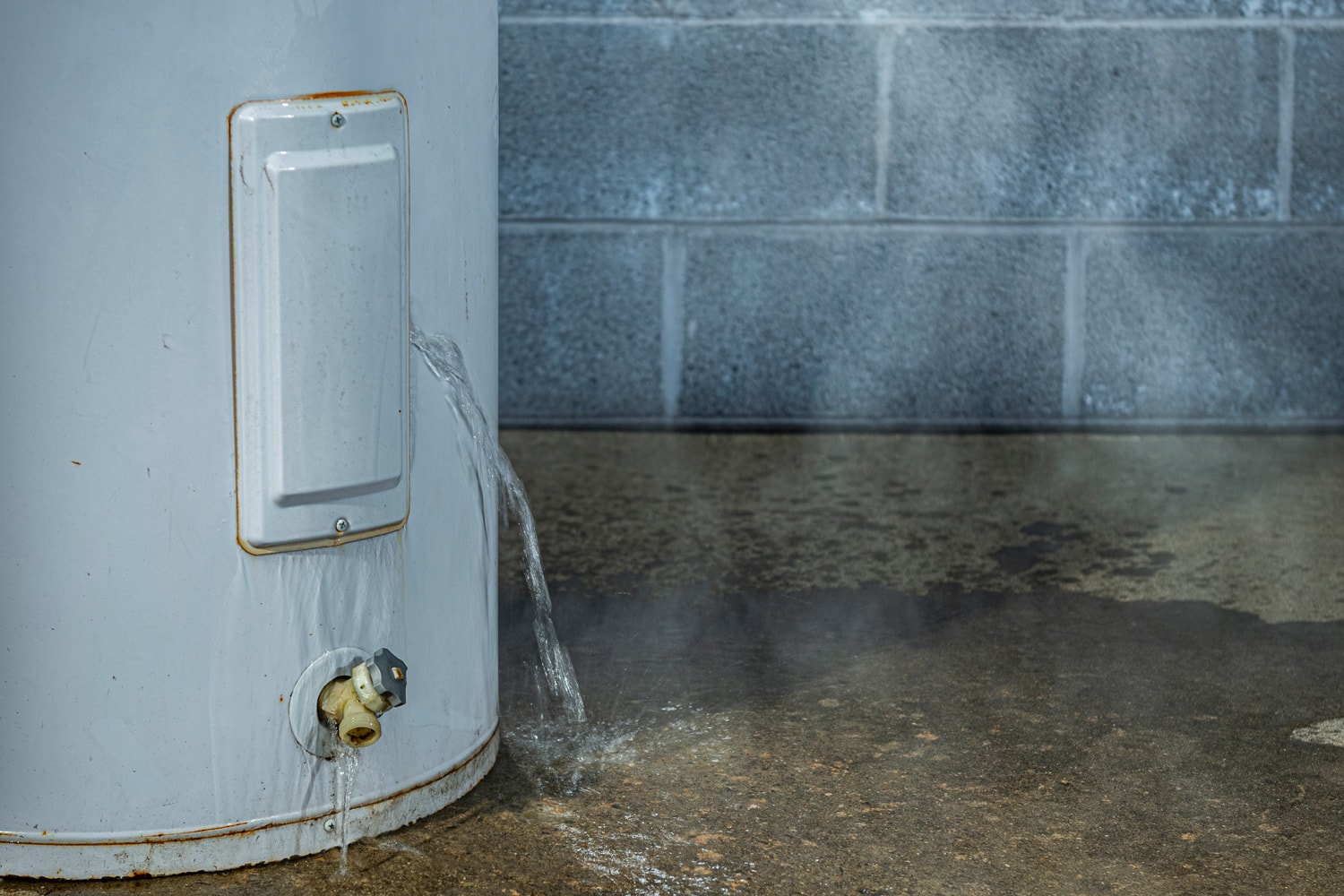Water heaters are dependable and can last for more than a decade if properly cared for. But sometimes they may develop faults such as leaking. If this occurs, you might wonder if turning off your water heater is appropriate. To answer your question, we have researched water heating system troubleshooting and repair recommendations to help out.
If your water heater leaks, you should turn it off until the malfunction is identified and fixed. You can do this by flipping the shutoff valve or water heater breaker panel.
There are a variety of reasons your water heater can leak. Read on as we talk about how leaking affects your water heater and the appropriate times you should turn it off.
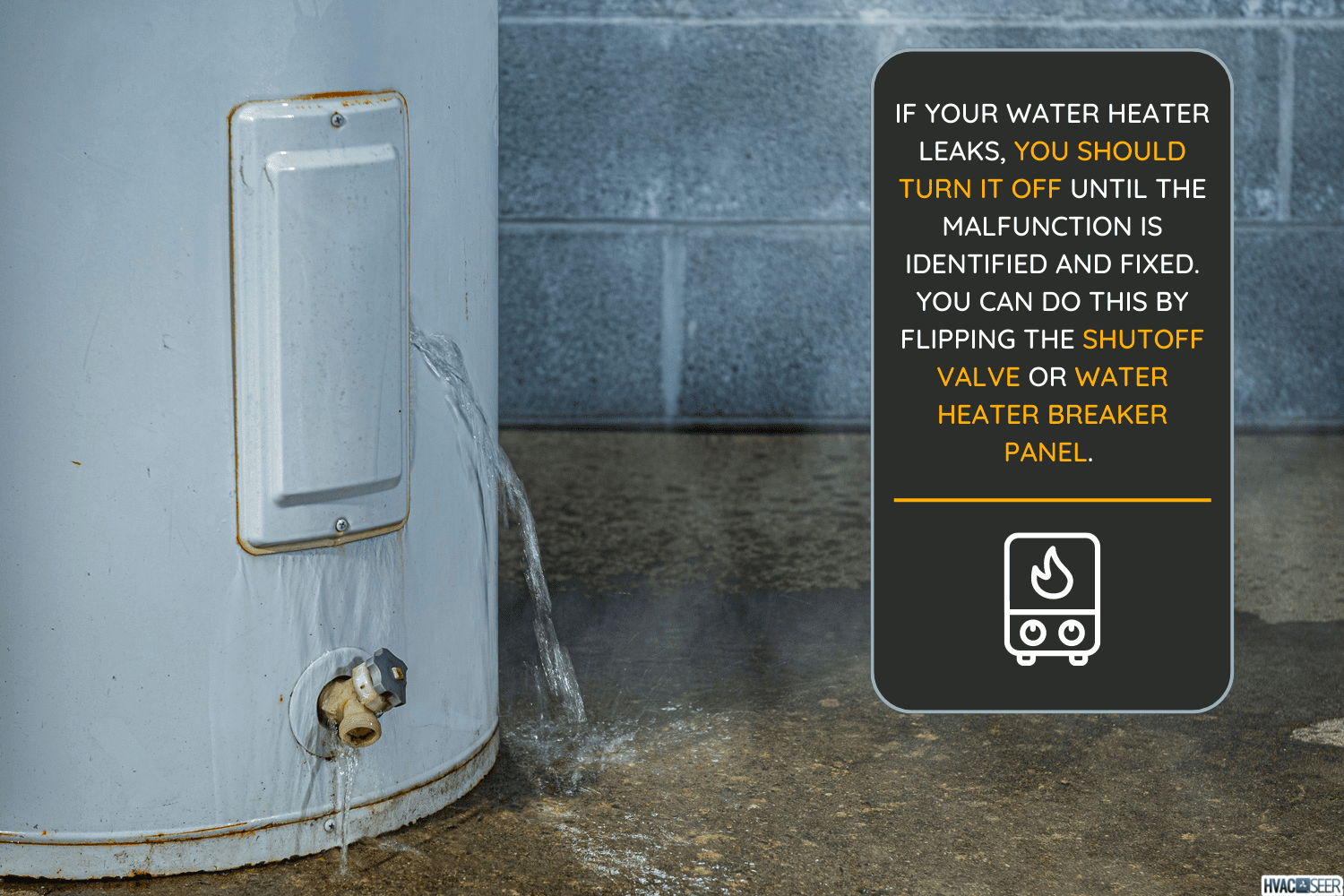
What To Do When Your Water Heater Leaks
There are different likely causes of water heater leaks. The most common include worn-out or loose gaskets, corrosion, or damaged cold and hot water connections.
It is important to determine the exact cause of the leak before choosing the best repair method. A puddle of water forming near your water heater is a common indicator that it is leaking.
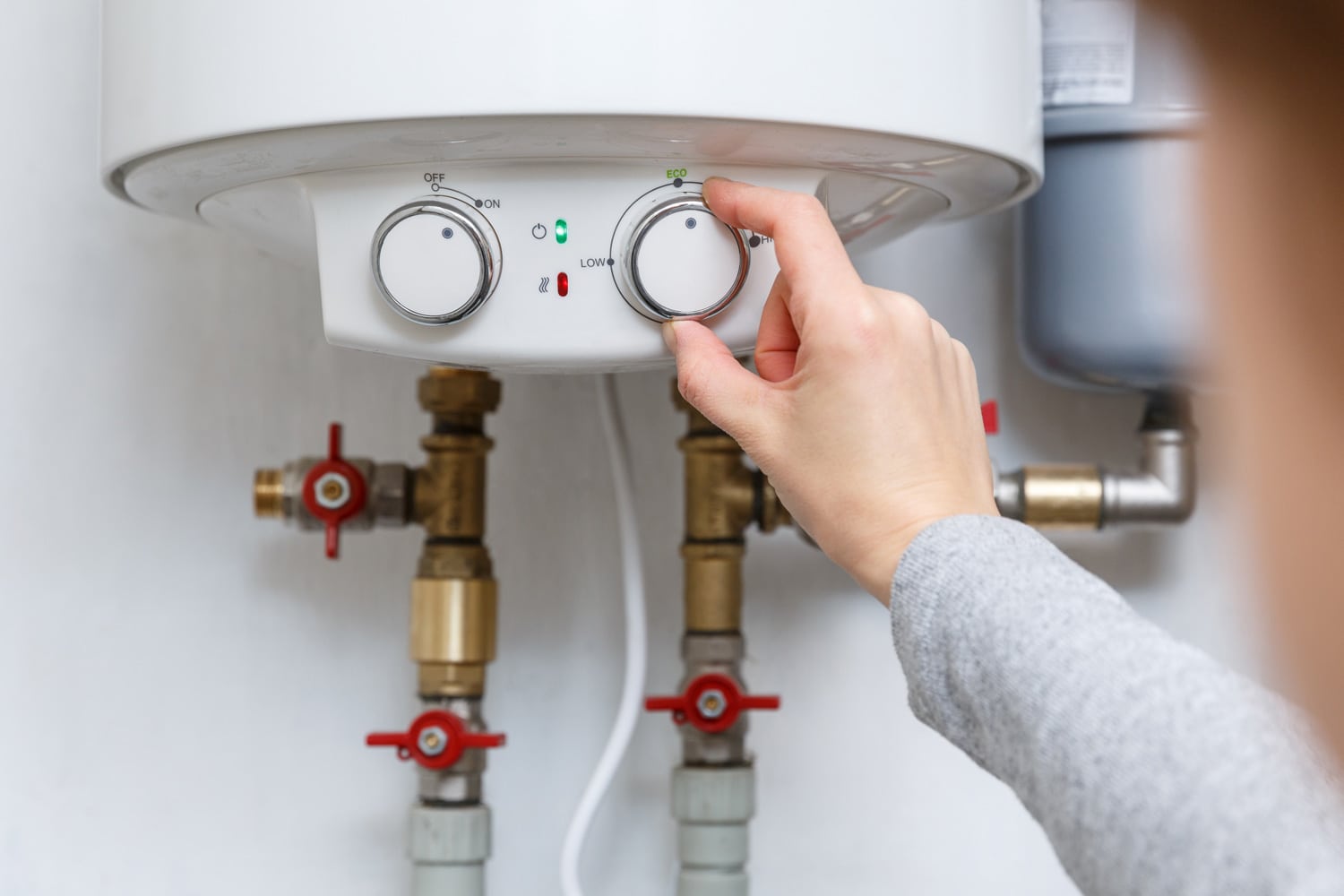
However, make sure you take a second look, as condensation of water vapor can be mistaken as leaking. Follow these steps before calling an experienced technician:
Turn Off The Water Heater
For safety reasons, the first step to take if you suspect leaking is to turn off your water heater by flipping the switch of the water heater breaker panel. This would also shut off the water supply immediately.
If you use a gas-powered water heater, use the “shut off” valve to turn off the gas supply.
Drain The Tank and Inspect Inlet and Outlet
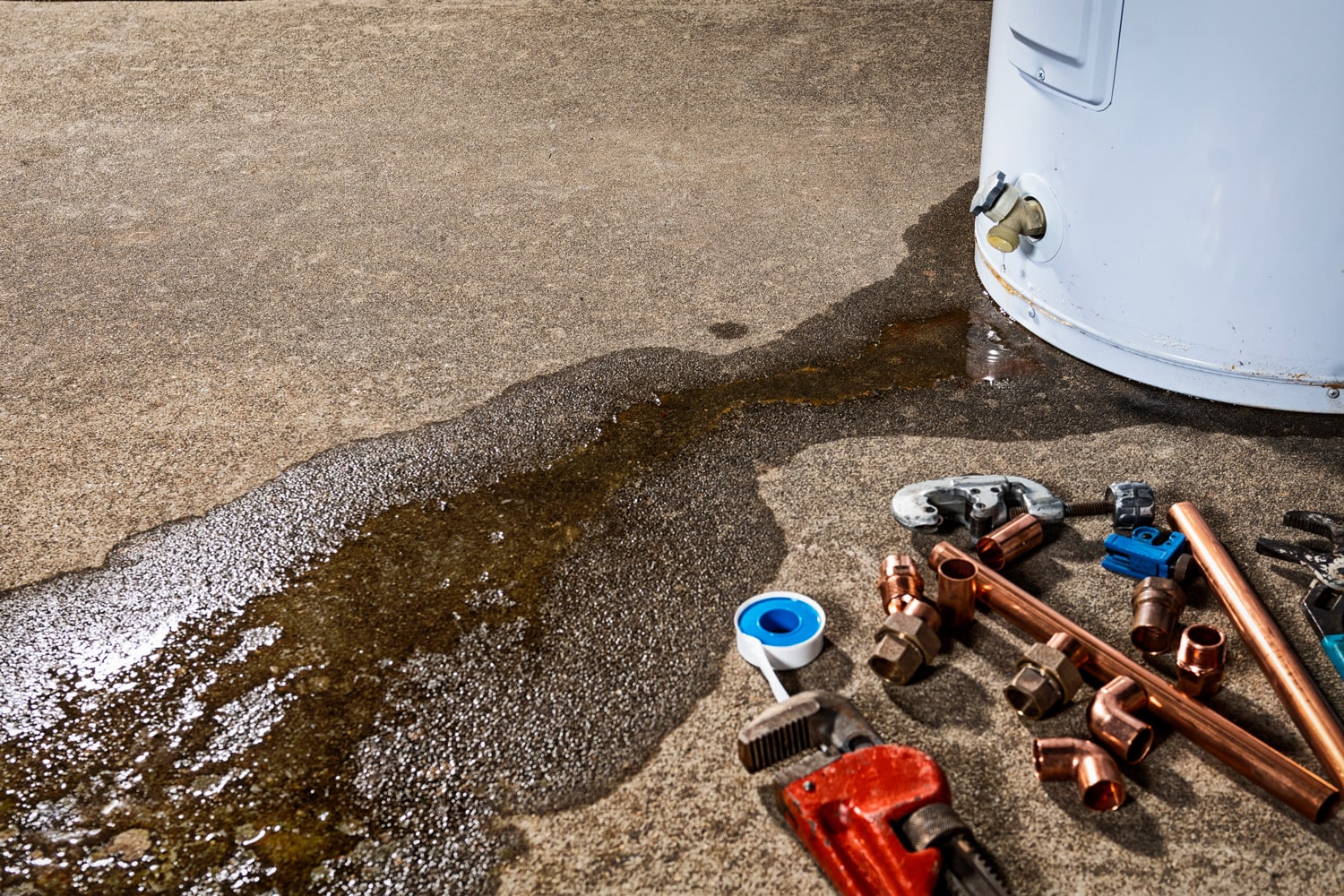
After shutting off the power supply, drain the tank completely using a hose. Then inspect for loose connections in the inlet and outlet water connections.
Inspect Water Temperature and Pressure
If the water temperature or pressure is high, it might be the cause of the leaking valve. Check the thermostat to know what temperature your heater is set to.
The recommended temperature by the department of energy is 120 degrees Fahrenheit, although manufacturers might have slightly different settings on their systems.
After following these steps, it is best to get in touch with professional HVAC technicians for an expert diagnosis of the problem.
How Long Will a Water Heater Last After It Starts Leaking?
Water heaters are often placed out of sight in homes. This means damage can take considerable time to detect, especially if you don’t conduct regular maintenance.
Water heaters typically last up to 15 years but how long your water heater lasts when it leaks depends on the cause of the leak.
It could be a mild issue that requires a simple solution like valve tightening. On the other hand, more complex problems like displacement of both hot and cold in/outlet could permanently damage your water heater if not tended to quickly.
The location of the leak is also a factor. Leaks from areas like the tank mean your water heater wouldn’t last long if the tank isn’t replaced immediately.
Generally, leaking in your water heater should be tended to immediately after it is noticed. In about a month, the leaking would get worse and might cause flooding your home, causing even further damage.
Can I Shut Off The Water To My House and Safely Leave The Water Heater On While I’m On Vacation For a Week?
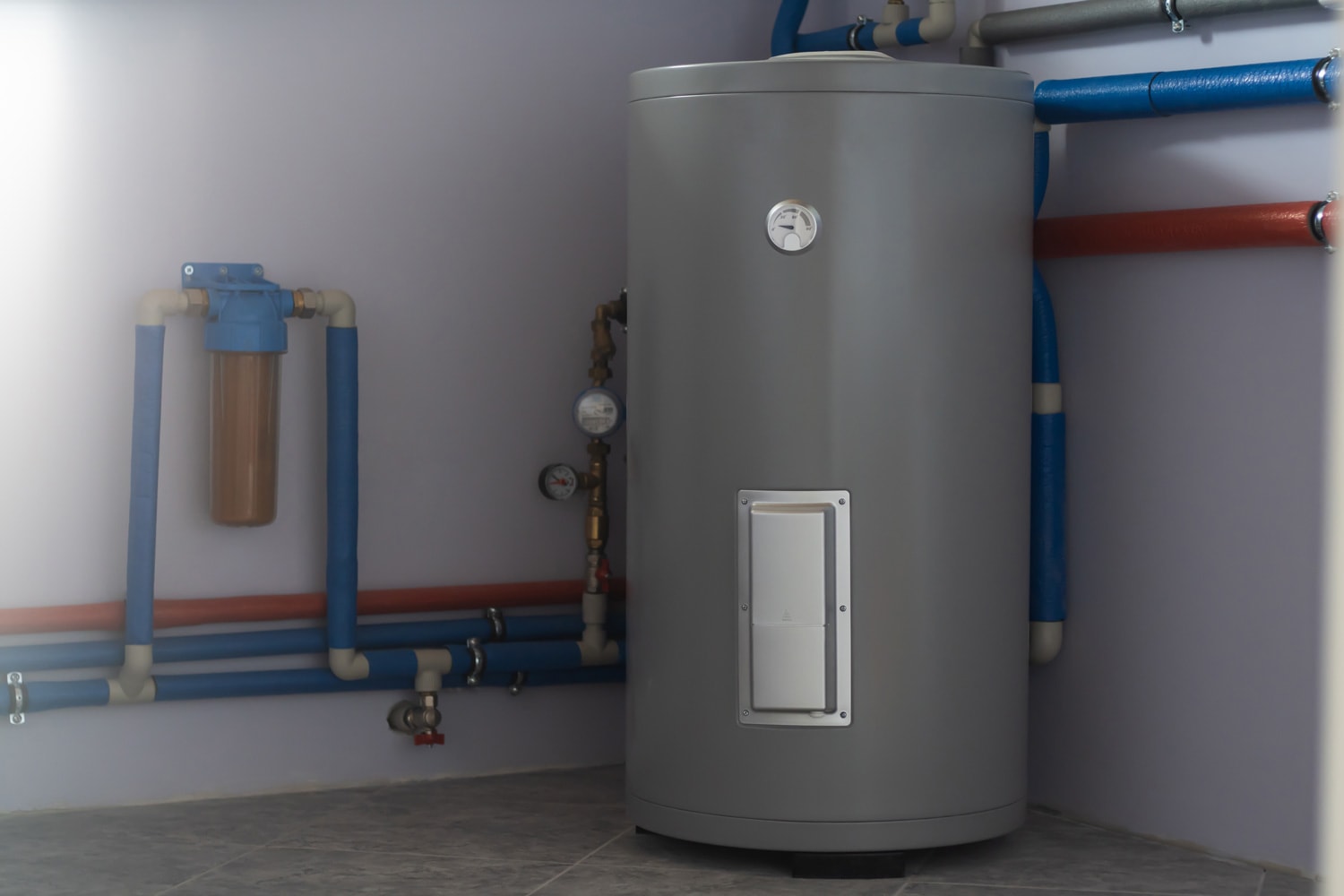
Returning home to moldy carpets and a pungent smell after a vacation would be a nightmare. Turning off the water supply to your house can prevent this, but do you need to turn off your water heater as well?
Not necessarily. Turning off your water heater and your water supply might sound like a good idea, but this might lead to more energy consumption by your system.
If you’ll be away for a week, you can set your water heater on vacation mode ("VAC")or reduce the temperature. This way, you can continue using hot water right away when you return.
Unfortunately, the “VAC” mode is mostly available for more modern heaters. So if you use an older system without the vacation mode, you can turn off your heater completely to avoid further damage in case your tank develops a leak while you’re away.
How Much Does It Cost To Replace a Water Heater?
The cost of replacing a water heater ranges from $800 - $3,500. These figures can vary depending on factors like your location, cost of the unit, and labor.
For replacing regular-sized units for small homes, you can get a technician to do the job for less than $900. However, larger, more modern units can rack bills up to $10,000 or even more.
Understanding the type of water heater you need to serve your home best would help you calculate the total cost needed for this project.
Type of Water Heater: Tank or Tankless
Tank and tankless water heaters are the two main types in most homes. The traditional tank water heater stores up to 50 gallons of water or more. Hot water is distributed to different home parts through a pipe at the top of the tank.
In the tankless water heater, water is heated through a high-powered burner and heat exchanger before it is distributed to different areas of the house. Both types can be powered by either electricity or gas.
Most homes use tank-style heaters, and installation and repair cost is less expensive than the tankless water heater. The tankless water heater is smaller but needs more specialized expertise and is more difficult to install, hence the higher labor cost.
Can I Replace The Water Heater Myself?
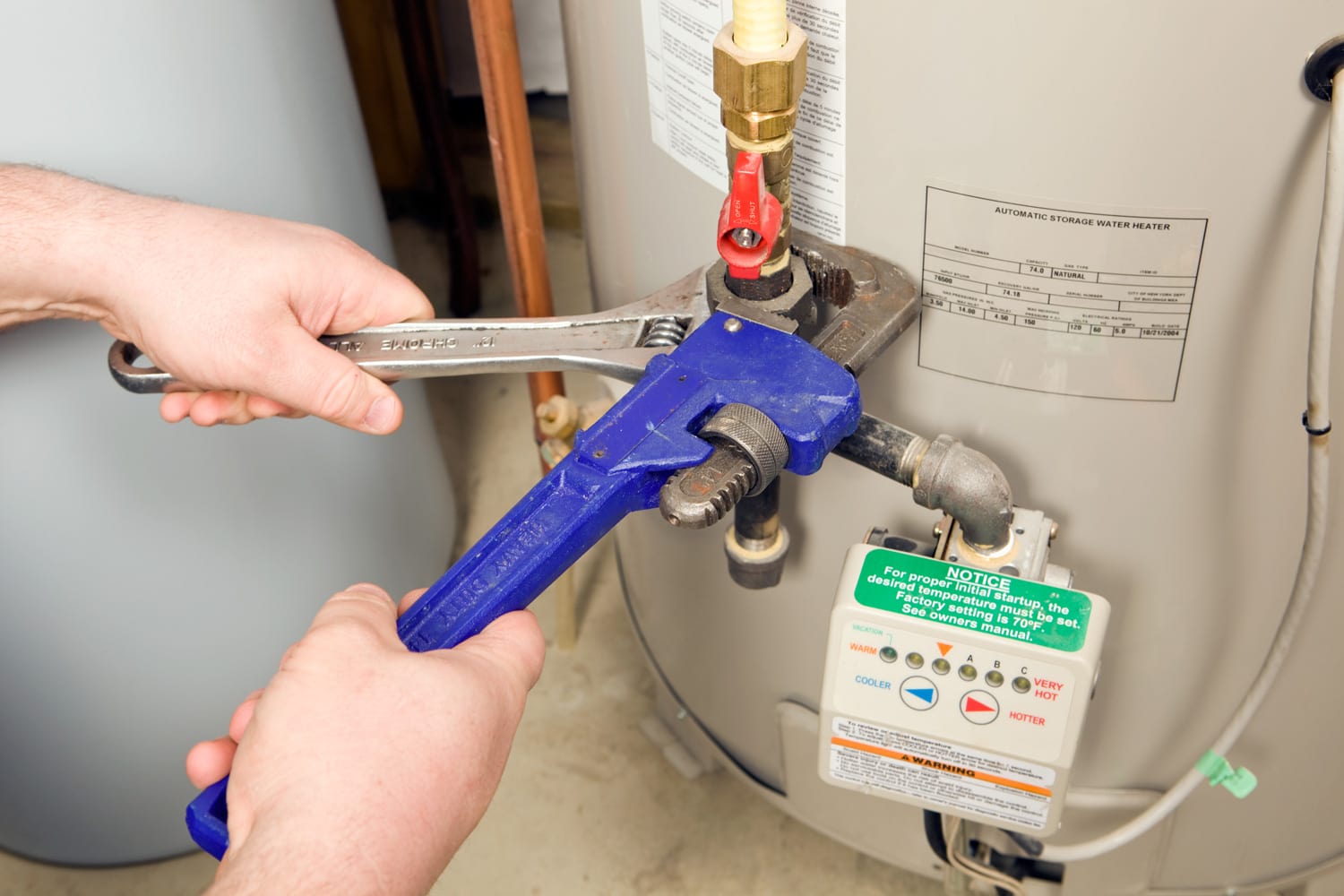
While you can technically replace your water heater yourself, this is strongly not advised if you don’t have the technical expertise.
Replacing your water heater isn’t a regular project you can simply read a manual to take on. Various combined skills are needed, such as plumbing, HVAC, and electrical repair knowledge.
Replacing your water heater yourself is unsafe. The mistake or extra damage you caused might not be obvious initially, but with time pressure would build up. Eventually, this can lead to a catastrophic explosion that might cause loss of life and properties.
Conclusion
Water heaters are essential fixtures in a home and should be routinely maintained. A leaking water heater is a potential hazard if left unattended. Turn off the water heater immediately if you notice a leak, inspect your system and call experienced technicians for professional assessment and repair.
Wondering when else you should turn off your water heater? Check out our related posts:

